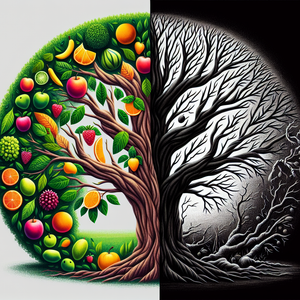The Change Agent’s Toolkit: Essential Skills for Success in Corporate Transformations

Change agents must possess several key competencies to navigate corporate transformations effectively.
Emotional Intelligence (EI)
Emotional intelligence serves as the bedrock of effective change management. Change agents must be adept at recognizing, understanding, and managing not only their own emotions but also the emotions of others. This skill is crucial for creating a supportive environment during challenging transitions. For instance, a change agent who empathizes with employees' anxieties about job security can proactively address these concerns, offering reassurance and clarity. Research indicates that teams led by emotionally intelligent leaders experience higher levels of engagement and lower turnover rates—both vital components during times of change.
Adaptability
The ability to adapt to new circumstances is a critical trait for change agents. Change is often unpredictable, and those who can pivot quickly in response to new information or challenges will be more effective in their roles. Consider a scenario where an organization suddenly shifts to remote work; a change agent who can swiftly modify their management style and communication methods to suit a virtual environment can help maintain productivity and morale. Adaptability also encompasses being receptive to feedback and willing to adjust strategies as necessary, ensuring that the change initiative remains aligned with organizational objectives.
Strategic Thinking
Strategic thinking is another essential competency for change agents. They must envision the long-term impacts of changes and align them with the organization’s overarching goals. This involves a thorough assessment of the current state of the organization, identifying opportunities for improvement, and crafting a clear roadmap for implementation. For example, a change agent responsible for deploying a new customer relationship management (CRM) system should not only focus on the technical aspects but also consider how this change will enhance customer satisfaction and contribute to business growth. Strategic thinking enables change agents to effectively communicate the larger vision to their teams, instilling a sense of purpose and direction.
Communication Skills
Effective communication is paramount during any change initiative. Change agents must excel in conveying information clearly and persuasively while also actively listening to employee feedback. Tailoring communication styles to resonate with different audiences—whether addressing executives, middle management, or frontline employees—can significantly impact the success of the change process. For instance, a change agent might employ data-driven presentations for leadership while opting for more informal discussions with staff to address their concerns and gather insights. Transparent and open communication fosters trust, mitigates uncertainty, and encourages buy-in from all stakeholders.
Conflict Resolution
Change often precipitates tension and conflict within teams, making conflict resolution skills essential for change agents. They need to adeptly mediate disputes and facilitate constructive conversations, requiring a deep understanding of group dynamics and the ability to remain impartial while guiding parties toward mutually beneficial resolutions. For example, if two departments clash over resource allocation during a merger, a skilled change agent can help navigate these discussions to find a solution that satisfies both parties, thereby preserving harmony and collaboration.
As organizations continue to navigate the complexities of change, the role of change agents becomes increasingly vital. By cultivating essential skills such as emotional intelligence, adaptability, strategic thinking, communication, and conflict resolution, professionals can enhance their effectiveness in managing corporate transformations. These competencies not only contribute to the success of change initiatives but also foster a resilient organizational culture capable of thriving amid uncertainty. In an era where change is the only constant, equipping oneself with the right toolkit is not merely beneficial; it is essential for achieving long-term success in the corporate landscape.
Change Management Consultant
Deloitte, McKinsey & Company, Accenture
Responsibilities
Assess organizational readiness for change and develop tailored change management strategies.
Facilitate workshops and training sessions to educate employees about new processes and systems.
Monitor and report on change initiatives to ensure alignment with strategic goals.
Required Skills
Strong understanding of change management methodologies (e.g., ADKAR, Kotter’s 8-Step Process).
Excellent stakeholder management and communication skills.
Experience with data analysis to measure the impact of change initiatives.
Organizational Development Specialist
IBM, PwC, large corporations with dedicated HR teams
Responsibilities
Design and implement programs aimed at improving organizational effectiveness and employee engagement.
Conduct assessments and analysis to identify areas for development and organizational improvement.
Collaborate with leadership to align development initiatives with business strategy.
Required Skills
Proficiency in talent management and organizational design theories.
Strong facilitation and coaching skills to support team dynamics.
Ability to analyze and interpret employee feedback and performance metrics.
HR Change Agent
Fortune 500 companies, healthcare organizations, educational institutions
Responsibilities
Lead HR initiatives during organizational transformations, including restructures and cultural shifts.
Serve as a liaison between employees and management to communicate changes effectively.
Develop training programs to support staff through transitions.
Required Skills
In-depth knowledge of HR practices and employment laws.
Exceptional interpersonal skills and emotional intelligence.
Experience in project management and change management frameworks.
Project Manager - Change Initiatives
IT firms, consulting agencies, large corporations undergoing digital transformation
Responsibilities
Plan, execute, and oversee projects related to organizational change to ensure timely and on-budget delivery.
Coordinate cross-functional teams to align resources and objectives throughout the change process.
Identify risks and develop mitigation strategies to minimize disruption during transitions.
Required Skills
Certification in project management (e.g., PMP, PRINCE2).
Proven ability to manage multiple projects simultaneously in fast-paced environments.
Strong analytical skills to evaluate project outcomes and make data-driven decisions.
Culture Change Manager
Nonprofits, tech startups, companies looking to innovate their workplace culture
Responsibilities
Develop and implement strategies to shift organizational culture towards desired values and behaviors.
Conduct surveys and focus groups to gauge employee sentiment and readiness for cultural change.
Collaborate with leadership to ensure alignment between culture initiatives and business goals.
Required Skills
Expertise in organizational psychology and cultural assessment tools.
Strong communication and change management skills to engage stakeholders at all levels.
Creative problem-solving abilities to address cultural resistance and promote acceptance.


